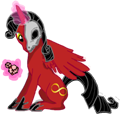One thing I'm pretty happy about is the poem I wrote for the program. It's in Old English, so I'll post and gloss it.
Welige mid wynne æt wrætlicum brydhlope,
Se guma
ongrataþ and his bryde singeþ,
Hiera
sangdream macaþ micel myrgnesse,
Hiera
hleahtor niweþ wið heofones þanc
Þæt cyndelic diht of dreames mid geard.Abound with joy at a wondrous wedding,
the groom smiles and his bride sings,
their music makes great melody,
their laughter renews against heavenly intent
that natural state of harmony with the earth.
I'm quite proud of it. It's only a little thing, but it represents a couple things for me. I love my partner and I just want to have a beautiful day of music and fun and love. The other thing it represents is my relationship as a writer to Old English as a language. I find occasions to use an alliterative pattern in my poems, I do entire poems in approximate Anglo-Saxon verse, I translate Old English, and I try, even in non-alliterative work, to work kennings into my poetry.
I feel a great connection with the language, and actually working within the language, writing small things in Old English, is how I feel best able to root my poetry in the history of the language. Working with Old English, both translating the language and generating the language, I am more productive. I write more and my writing is better. As a poet, Old English has expanded my repertoire.
Speaking of Old English, I begin work on translating the Riming Poem this week. Very excited about that.
Lastly, first dinner party since the move this Friday. We'll be having some of my partner's coworkers over, so I'll be making linguine. One of them is vegan and will be bringing her girlfriend, so I'll be cooking a separate vegan-friendly sauce for them. I've never made pasta sauce that didn't in any way involve meat, so I'll be interested in seeing how it works out. It's going to be a good week.




No comments:
Post a Comment